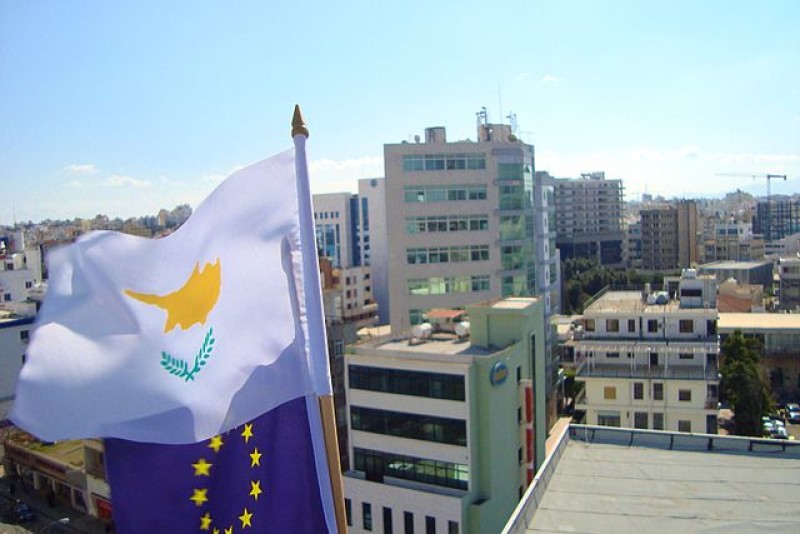Although the Eastern Mediterranean island and EU member has in 2016 criminalized the violation of U.N. and EU sanctions, it was still rocked by the imposition of U.S. and U.K. sanctions on a number of services providers on April 12 because law and accounting firms are among the main driving forces of the country’s services-driven economy.
The government held several meetings in recent weeks discussing how to contain the damage eventual sanctions would cause.
A report in Thursday’s Politis cited the chairman of the Cyprus Bar Association Christos Clerides who said that last year, 35 law firms disclosed that they were offering services to 35 sanctioned oligarchs.
The number, it said, may be even higher as several law firms failed to report whether they did so or not.
This was in line with recent OCCRP reports about clients of Meritservus, a U.K.-sanctioned services provider based in Limassol, which was offering services to sanctioned oligarch Konstatnin Malofeev.
Talking to OCCRP, Clerides confirmed the number published by Politis but said that it was collected immediately after last year’s wave of sanctions that had hit the oligarchs. An audit will show how many law firms meanwhile complied.
For example, the law firm Christodoulos Vassiliades complied only after it was sanctioned itself, Clerides said. “This doesn’t mean however that there had been (any) infringements. We are carrying out audits. Two (are already) underway.”
The chairman of the Cyprus Bar Association confirmed press reports that the island’s President Nikos Christodoulides is expecting more Cypriot individuals and companies to be affected by sanctions.
Politis also cited an unnamed source as saying that the Institute of Certified Public Accountants of Cyprus which supervises accountants is aware of 60 accounting companies offering “non-essential services” to 80 sanctioned individuals.
OCCRP could not confirm the claim as officials at the Institute did not respond when asked to comment.
"While other European countries are applying and implementing sanctions on Russia, Cyprus seems to be obstructing their implementation,” Olga Lautman, an expert on Russian kleptocracy networks and hybrid warfare at the Institute for European Integrity, told OCCRP.
“This can be explained with the fact that in the past, many oligarchs and businessmen, some linked to the Kremlin, set up a systematic operation to move and obscure money through companies on the island,” she said.
Cyprus, which less than three years ago ditched its golden passport scheme that offered citizenship to fugitives, despots and sanctioned individuals such as Oleg Deripaska, has a history of downplaying the significance of this type of restrictive measures.
In 2003, Cypriots elected Tassos Papadopoulos as president although he was allegedly helping former Serbian leader and war crimes suspect Slobodan Milosevic bypass U.N. sanctions during the wars that followed the breakup of Yugoslavia in the 1990s.
In 2011, a deadly explosion of seized Iranian munitions knocked out the main powerplant on the island, hurting its economy. A subsequent probe established that the island’s pro-Moscow government confiscated the munitions in 2009 as it was heading to Syria in violation of U.N. sanctions but then was reluctant to destroy or sell it because it did not want to upset the two key Russian allies.
The nation that in February elected Nikos Christodoulides who in 2020 singlehandedly vetoed EU sanctions against Belarus as their new president seems to have failed to recognize that times have changed.
“Since 1945, there has never been an enforcement pressure on a specific set of crimes like the one we are seeing now on sanctions violation: Never as coordinated, never as global and never with a political power as high up as now,” lawyer Viktor Winkler, an expert on European sanctions law, told OCCRP.
Every country in the alliance against Russia has at least one, often many task forces, led by the highest levels of governments. “This global effort is unparalleled in modern legal history,” he said.
Winkler explained that Cyprus could and should take a wide array of measures - from introducing disclosure obligations for all shell companies held by Russian entities and individuals, establishing a whistleblower hotline to investigating every company with a Russian link for potential sanctions breaches.
The EU ought to strongly consider a formal infringement procedure against Cyprus for non-compliance with its legal obligation to enforce EU sanctions effectively and vigorously, he suggested.
“It needs to do more, especially with the risk level that Cyprus carries," he added.
David Klein contributed to this report



